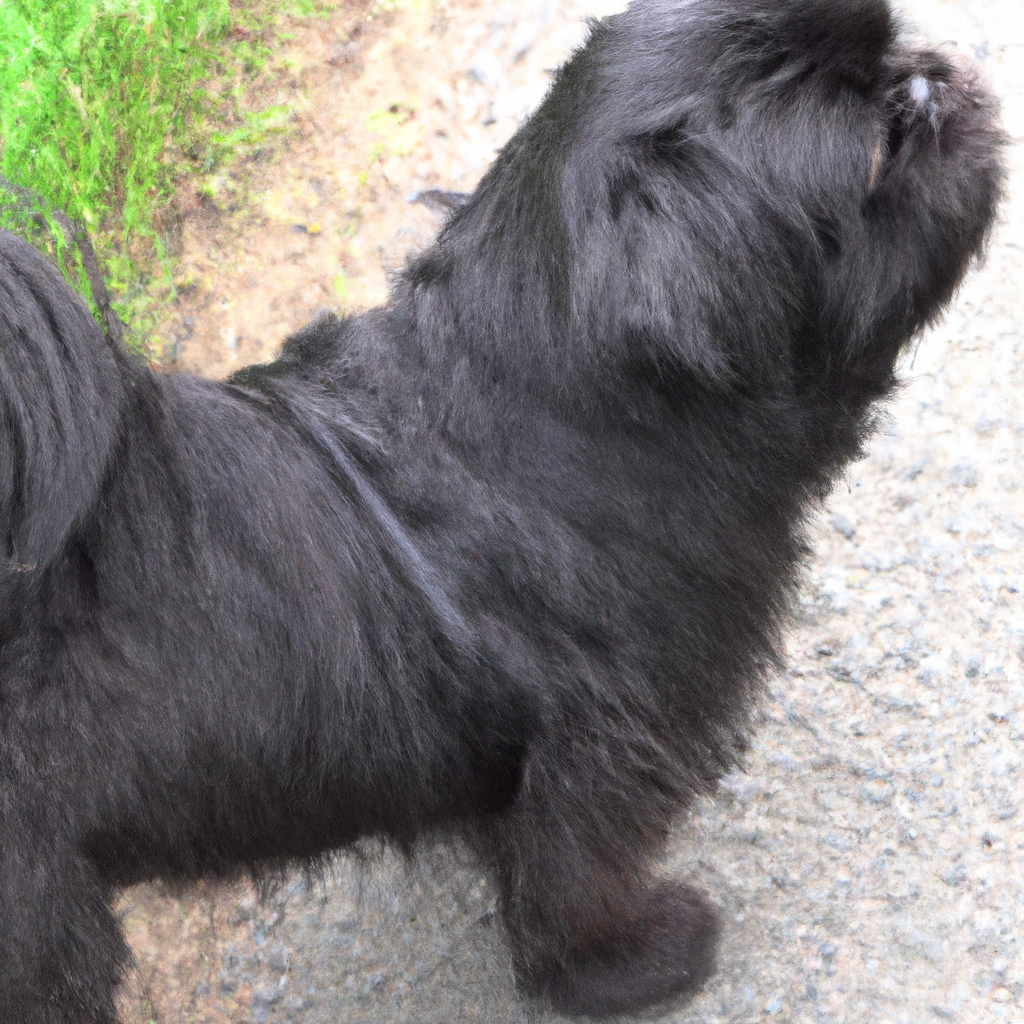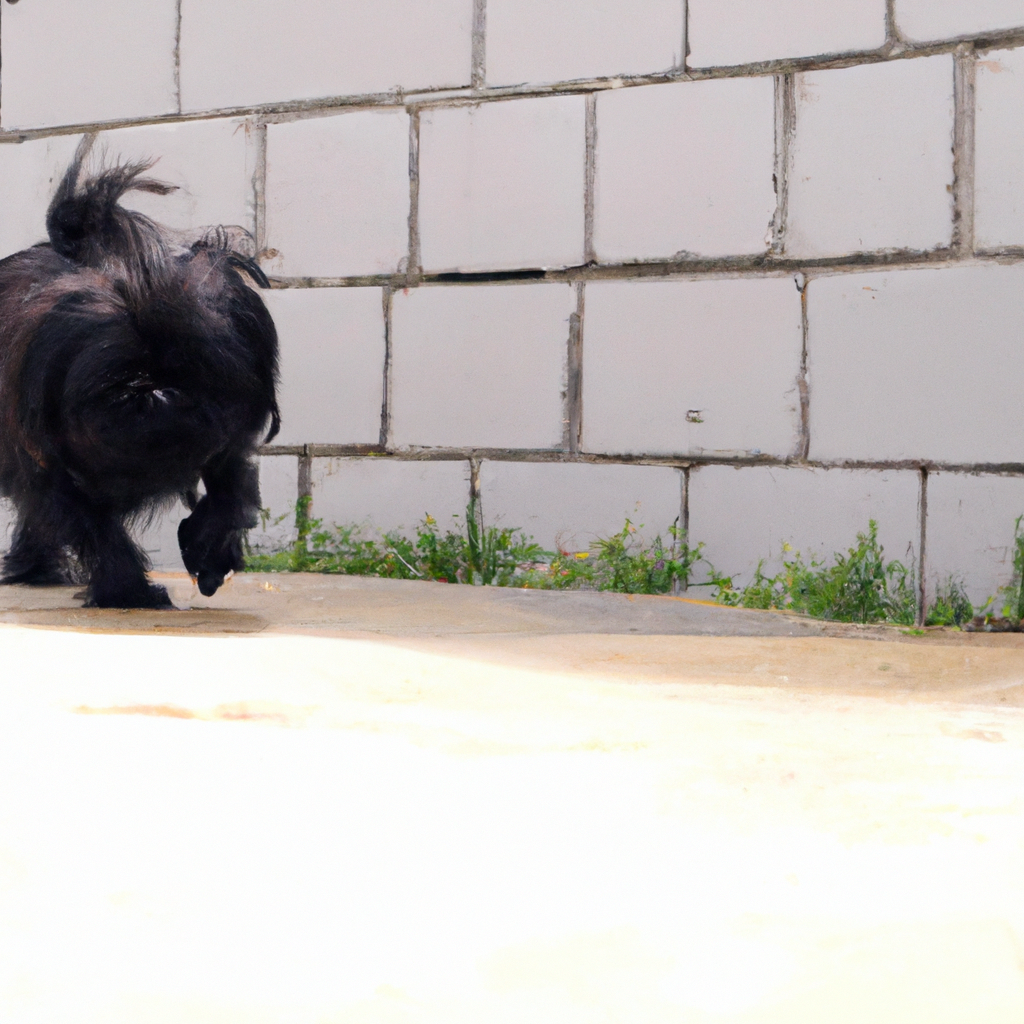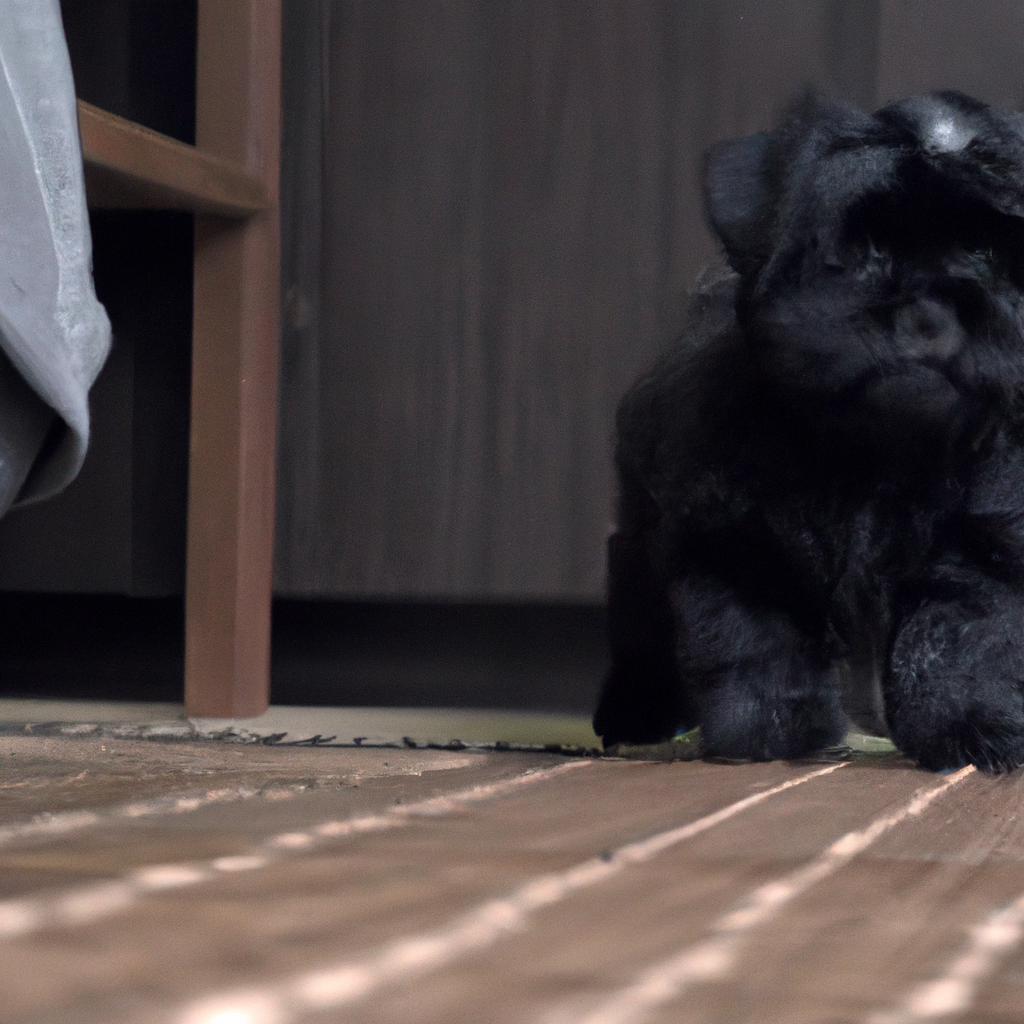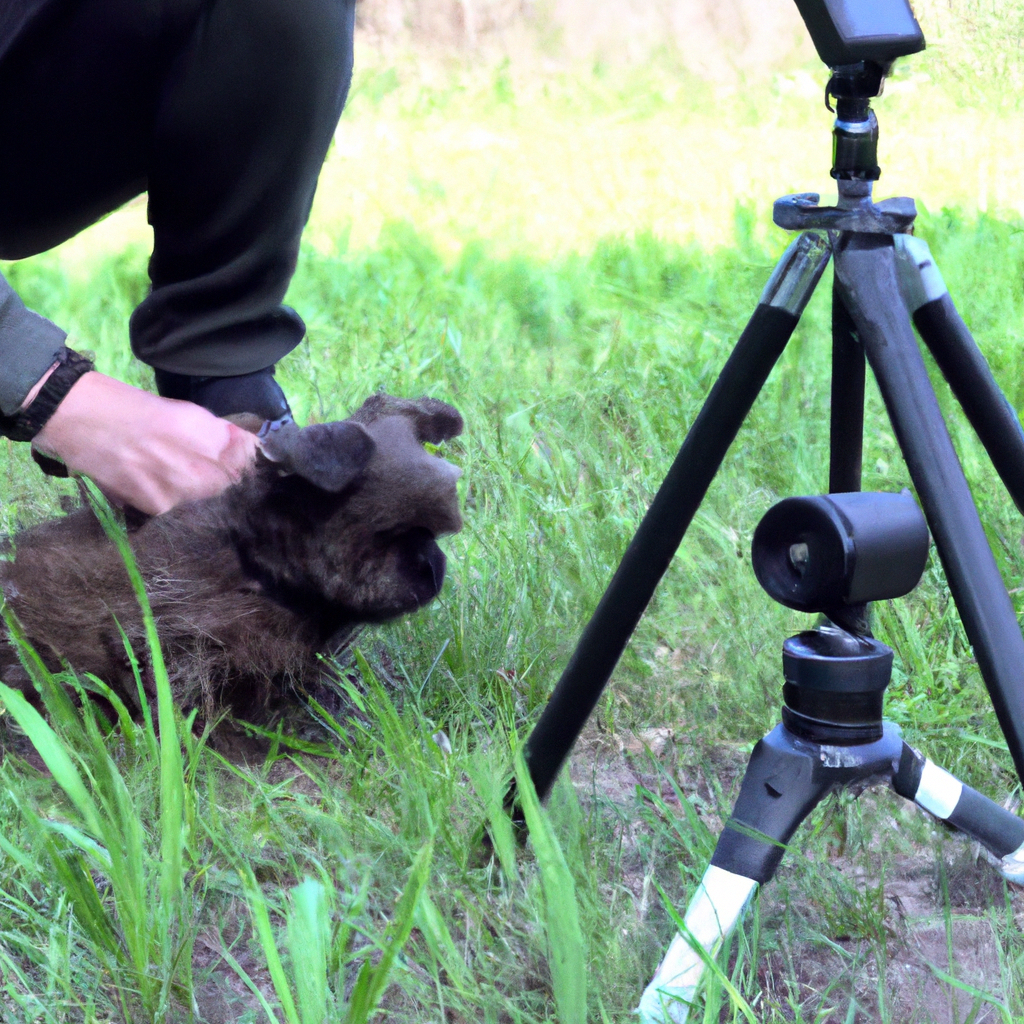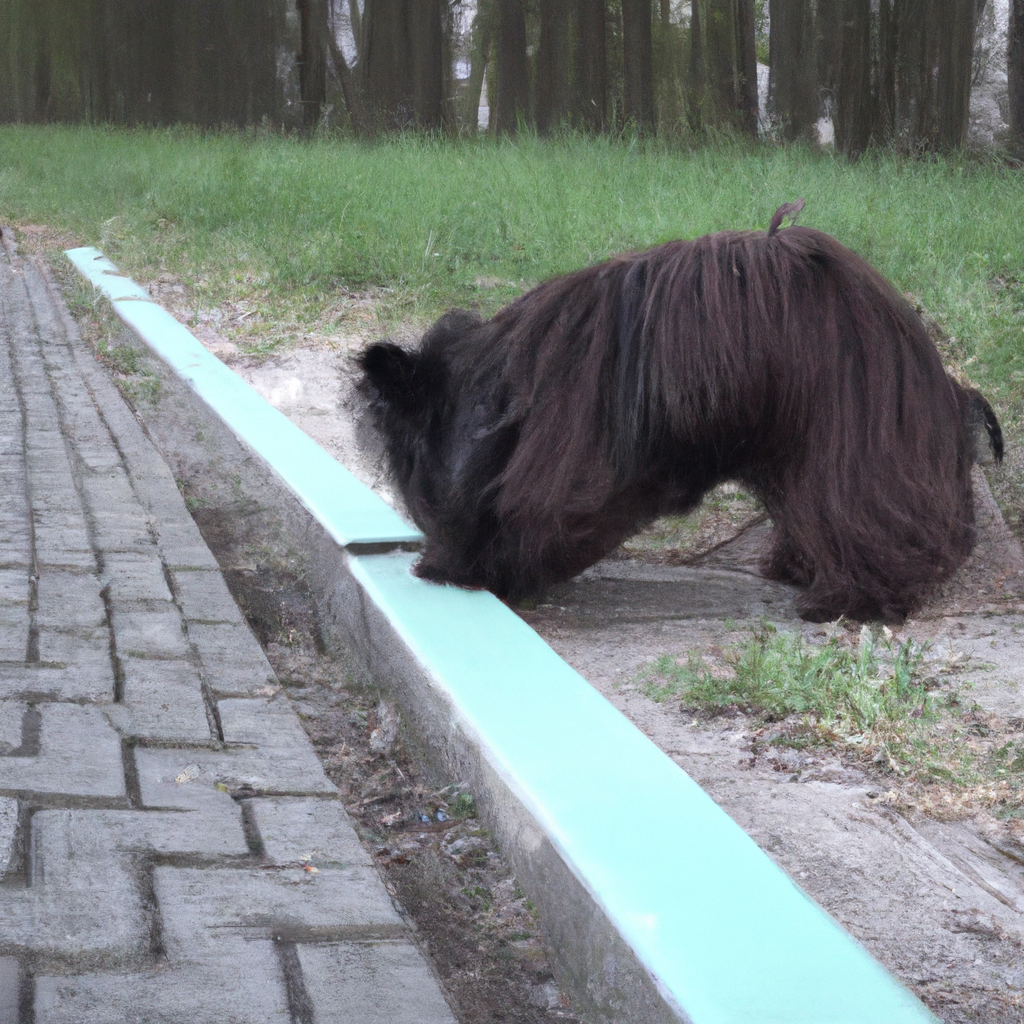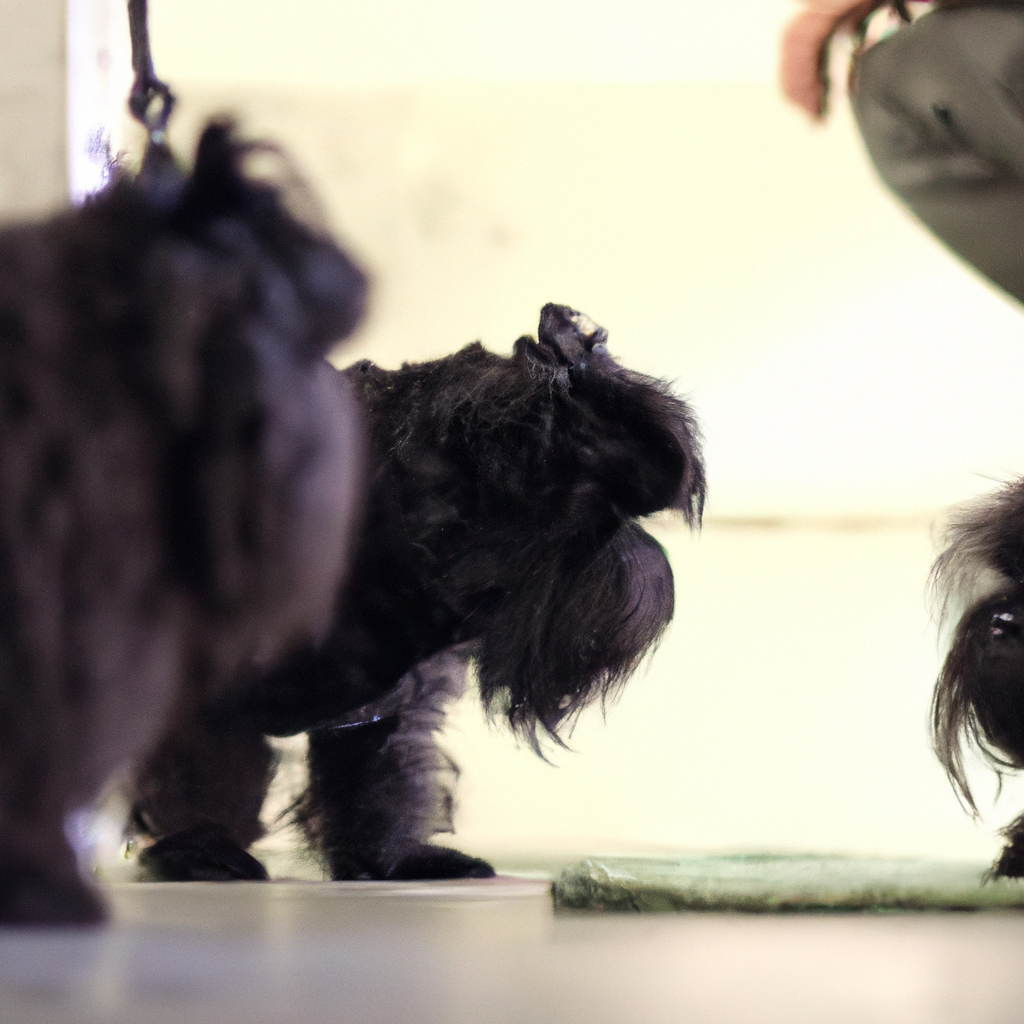The best way to train an Affenpinscher, a small dog breed known for its playful and adventurous nature, involves a combination of positive reinforcement, consistency, and early socialization. Training should start at a young age to ensure they develop good habits and behaviors. Using rewards such as treats, praises, and toys can motivate them during training sessions. Consistency is key in reinforcing these behaviors, and it’s important to maintain the same commands and rules to avoid confusing the dog. Early socialization with other dogs and people can also help Affenpinschers become well-rounded and sociable pets. It’s also recommended to use short, varied training sessions to keep them engaged and interested.
Effective Techniques for Training an Affenpinscher
Training an Affenpinscher, a small breed known for its monkey-like face and playful personality, can be a rewarding experience. However, it requires a specific approach to ensure success. The Affenpinscher, also known as the “Monkey Terrier,” is a lively and adventurous breed, full of spunk and energy. They are known for their stubbornness, which can make training a bit of a challenge. But don’t let that deter you. With the right techniques, you can effectively train your Affenpinscher and enjoy a harmonious relationship with your furry friend.
Firstly, it’s important to understand that Affenpinschers respond best to positive reinforcement. This means rewarding good behavior rather than punishing bad behavior. Rewards can be in the form of treats, praise, or playtime. When your Affenpinscher performs a desired action, immediately reward them. This will help them associate the action with a positive outcome, encouraging them to repeat it in the future.
Consistency is also key when training an Affenpinscher. This breed can be a bit stubborn, so it’s crucial to be consistent with your commands and rewards. If you reward your dog for sitting one day, but not the next, they may become confused about what you want from them. Make sure everyone in your household is on the same page with commands and rewards to avoid any confusion.
Socialization is another important aspect of training an Affenpinscher. This breed is known for being a bit wary of strangers and other dogs, so it’s important to expose them to a variety of people, places, and situations from a young age. This will help them become more comfortable in different environments and reduce any potential fear or aggression.
Training an Affenpinscher also requires patience. This breed is known for its independent streak, which can sometimes make training a bit of a challenge. However, with patience and persistence, you can help your Affenpinscher understand what you want from them. Remember, training is a process, and it’s okay if your dog doesn’t get it right away. Keep practicing and eventually, they will catch on.
Another effective technique for training an Affenpinscher is to keep training sessions short and fun. This breed has a short attention span, so long training sessions may not be effective. Instead, aim for short, frequent training sessions throughout the day. This will keep your Affenpinscher engaged and make training more enjoyable for both of you.
Lastly, it’s important to remember that every dog is unique. What works for one Affenpinscher may not work for another. Pay attention to your dog’s individual personality and preferences. Some Affenpinschers may respond better to treats, while others may prefer praise or playtime. By understanding your dog’s individual needs and preferences, you can tailor your training approach to be more effective.
In conclusion, training an Affenpinscher requires a combination of positive reinforcement, consistency, socialization, patience, and individualized training techniques. With these strategies, you can effectively train your Affenpinscher and enjoy a rewarding and harmonious relationship with your furry friend. Remember, the goal of training is not just to have a well-behaved dog, but also to strengthen your bond with your pet. So, keep it positive, keep it fun, and enjoy the journey.
Understanding the Affenpinscher: A Guide to Successful Training
The Affenpinscher, often referred to as the “Monkey Dog” due to its primate-like appearance and playful nature, is a small but feisty breed. Training an Affenpinscher can be a unique experience, filled with both challenges and rewards. The key to successful training lies in understanding the breed’s characteristics, temperament, and needs.
Affenpinschers are known for their intelligence and stubbornness, a combination that can make training both interesting and challenging. They are quick learners, but their independent nature often leads them to decide whether they want to follow your commands or not. This is where patience and consistency come into play. It’s important to establish yourself as the leader of the pack from the get-go. This doesn’t mean being harsh or domineering, but rather showing firmness and consistency in your commands and expectations.
Positive reinforcement is the best approach when training an Affenpinscher. They respond well to rewards, be it treats, praise, or playtime. When your Affenpinscher follows a command or behaves well, make sure to reward them immediately. This helps them associate the action with the reward, encouraging them to repeat the behavior. However, be careful not to overdo the treats, as Affenpinschers can easily become overweight.
Socialization is another crucial aspect of training. Affenpinschers are naturally wary of strangers and can be quite territorial. Early socialization can help mitigate these tendencies. Expose your Affenpinscher to a variety of people, environments, and other animals from a young age. This will help them become more comfortable in different situations and reduce their tendency to be overly protective or aggressive.
Training sessions should be short and engaging. Affenpinschers have a relatively short attention span, so long training sessions can quickly become unproductive. Aim for short, frequent training sessions instead. This keeps the training process fun and interesting for your Affenpinscher, increasing the chances of success.
Despite their small size, Affenpinschers are energetic and require regular exercise. Incorporating play into training sessions can help burn off some of this energy and make training more enjoyable. Remember, a tired Affenpinscher is a well-behaved Affenpinscher.
Patience is key when training an Affenpinscher. Progress may be slow and there may be setbacks along the way. It’s important to stay patient and not get frustrated. Remember, every dog learns at their own pace. Celebrate small victories and keep the training process positive and enjoyable for both you and your Affenpinscher.
Lastly, don’t hesitate to seek professional help if needed. If you’re struggling with training or facing behavioral issues, a professional dog trainer or behaviorist can provide valuable guidance and support.
In conclusion, training an Affenpinscher is a journey that requires patience, consistency, and understanding. By using positive reinforcement, keeping training sessions short and engaging, and ensuring early socialization, you can successfully train your Affenpinscher. Remember, the goal is not just to have a well-behaved dog, but also to strengthen the bond between you and your furry friend. Happy training!
Top Training Methods for Your Affenpinscher
Training an Affenpinscher, a small breed known for its distinctive monkey-like face and playful personality, can be a rewarding experience. However, it requires a specific approach to ensure that your furry friend grows into a well-behaved and sociable pet. The best way to train an Affenpinscher involves a combination of positive reinforcement, consistency, and patience.
Affenpinschers are intelligent and eager to please, making them relatively easy to train. However, they also have a stubborn streak, which can sometimes make training a bit challenging. This is where positive reinforcement comes in. This method involves rewarding your Affenpinscher for good behavior, which encourages them to repeat it. Rewards can be anything your dog finds motivating, such as treats, toys, or praise. For instance, if your Affenpinscher sits on command, immediately reward them with a treat and enthusiastic praise. This will help them associate the command with the reward, making them more likely to obey in the future.
Consistency is another crucial aspect of training an Affenpinscher. Dogs thrive on routine and predictability, so it’s essential to be consistent with your commands and expectations. If you allow your Affenpinscher to jump on the couch one day and then scold them for it the next, it will confuse them and make training more difficult. Make sure everyone in your household is on the same page about the rules and follows them consistently.
Patience is also key when training an Affenpinscher. Remember, your furry friend is learning a whole new set of rules and commands, which can be overwhelming. It’s important to be patient and give them time to understand and master each command before moving on to the next. If your Affenpinscher is struggling with a particular command, take a step back and try breaking it down into smaller, more manageable steps.
Socialization is another important aspect of training your Affenpinscher. This breed is known for being a bit wary of strangers and other dogs, so it’s crucial to expose them to a variety of people, places, and situations from a young age. This will help them become more comfortable in different environments and reduce the likelihood of fearful or aggressive behavior.
Training sessions should be short and fun to keep your Affenpinscher engaged. This breed has a short attention span, so long training sessions can quickly become boring and counterproductive. Aim for several short training sessions throughout the day, rather than one long one.
Lastly, remember that every dog is unique and what works for one Affenpinscher might not work for another. It’s important to pay attention to your dog’s individual needs and adjust your training methods accordingly. If a particular method isn’t working, don’t be afraid to try something new.
In conclusion, training an Affenpinscher requires a combination of positive reinforcement, consistency, patience, and socialization. Keep training sessions short and fun, and always be willing to adapt your methods to suit your dog’s individual needs. With time and effort, your Affenpinscher will become a well-behaved and sociable member of your family.
The Best Way to Train an Affenpinscher: A Comprehensive Guide
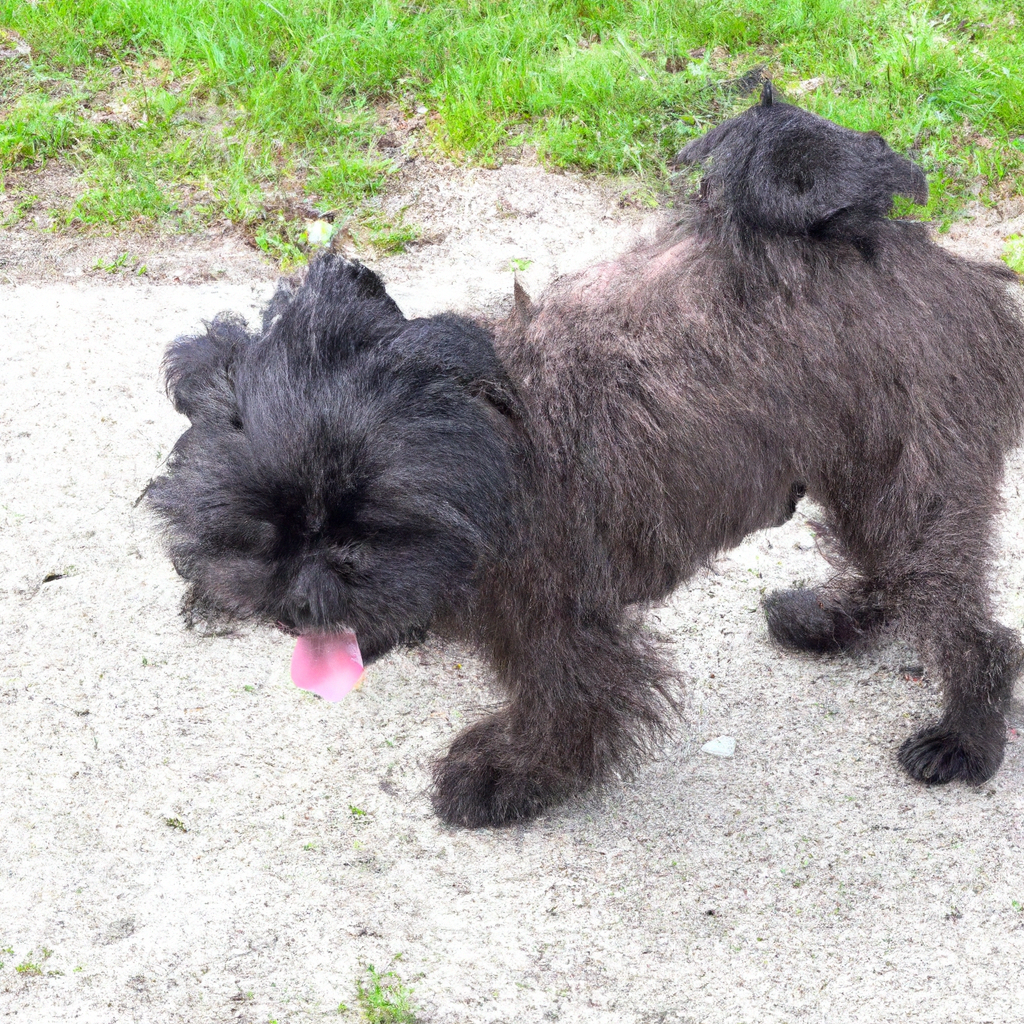
Training an Affenpinscher, a small breed known for its monkey-like face and playful personality, can be a rewarding experience. However, it requires a specific approach to ensure success. This comprehensive guide will provide you with the best way to train an Affenpinscher, ensuring that your furry friend grows into a well-behaved and happy pet.
Firstly, it’s important to understand the Affenpinscher’s unique temperament. This breed is known for its intelligence, curiosity, and stubbornness. They are quick learners but can also be independent and somewhat resistant to training. Therefore, patience and consistency are key when training an Affenpinscher.
Start training your Affenpinscher as early as possible. Puppies are more receptive to learning new commands and habits. However, remember that their attention span is short, so keep training sessions brief and engaging. Aim for 5 to 10 minutes at a time, several times a day.
Positive reinforcement is the most effective method for training an Affenpinscher. This breed responds well to rewards such as treats, praise, and playtime. Whenever your Affenpinscher performs a desired behavior, immediately reward them. This will help them associate the behavior with positive outcomes, encouraging them to repeat it in the future.
On the other hand, harsh punishment or negative reinforcement can be counterproductive. Affenpinschers are sensitive dogs, and negative experiences can lead to fear or anxiety. Instead of punishing your dog for unwanted behavior, redirect them towards a more desirable action. For example, if your Affenpinscher is chewing on a shoe, replace it with a chew toy and praise them when they take it.
Socialization is another crucial aspect of training an Affenpinscher. This breed can be somewhat territorial and wary of strangers, so it’s important to expose them to a variety of people, places, and situations from a young age. This will help them become more comfortable in different environments and reduce the likelihood of aggressive or fearful behavior.
Training an Affenpinscher to walk on a leash is also essential. This breed has a strong prey drive and may be inclined to chase after small animals. Start leash training indoors, gradually moving to quiet outdoor areas. Always reward your Affenpinscher for walking calmly by your side.
Lastly, remember that training an Affenpinscher, like any dog, is a commitment. It requires time, patience, and consistency. However, the rewards are well worth the effort. A well-trained Affenpinscher is a joy to live with, providing endless entertainment and companionship.
In conclusion, the best way to train an Affenpinscher involves understanding their unique temperament, starting training early, using positive reinforcement, avoiding harsh punishment, socializing them well, and teaching them to walk on a leash. With patience and consistency, your Affenpinscher will become a well-behaved and happy member of your family.
Mastering Affenpinscher Training: Tips and Tricks
Training an Affenpinscher, a small breed known for its distinctive monkey-like face and playful personality, can be a rewarding experience. However, it requires a certain level of patience, consistency, and understanding of the breed’s unique characteristics. Here are some tips and tricks to help you master Affenpinscher training.
Affenpinschers are intelligent and curious dogs, but they can also be stubborn and independent. This means that traditional training methods may not always work with them. Instead, positive reinforcement techniques are often the most effective. This involves rewarding good behavior with treats, praise, or playtime, which encourages the dog to repeat the behavior. It’s important to remember that Affenpinschers respond better to short, fun training sessions rather than long, tedious ones.
One of the first things you should teach your Affenpinscher is basic commands such as “sit,” “stay,” “come,” and “leave it.” These commands are not only useful in everyday situations but also help to establish you as the leader. Remember to be patient and consistent with your training. If your Affenpinscher doesn’t understand a command right away, don’t get frustrated. Instead, try to break it down into smaller, more manageable steps.
Socialization is another crucial aspect of Affenpinscher training. These dogs are naturally wary of strangers and can be territorial, so it’s important to expose them to a variety of people, places, and situations from a young age. This can help to prevent behavioral problems such as aggression or fearfulness later in life.
Affenpinschers are also known for their high energy levels, so regular exercise is a must. This not only helps to keep them physically healthy but also mentally stimulated. A bored Affenpinscher can become destructive, so make sure to provide plenty of toys and activities to keep them entertained. Puzzle toys that challenge their intelligence can be particularly effective.
Despite their small size, Affenpinschers can be quite vocal and have a tendency to bark. This can become a problem if not addressed early on. One way to manage this is by teaching your Affenpinscher the “quiet” command. This involves rewarding them when they stop barking on command. However, it’s also important to understand why your dog is barking in the first place. It could be due to boredom, anxiety, or a perceived threat. Addressing the root cause can often be more effective than simply trying to suppress the behavior.
Lastly, remember that every Affenpinscher is unique and what works for one may not work for another. It’s important to be flexible and willing to adapt your training methods to suit your dog’s individual needs and personality.
In conclusion, training an Affenpinscher can be a challenge, but with patience, consistency, and a positive approach, it can also be a fun and rewarding experience. By understanding and respecting your Affenpinscher’s unique characteristics, you can build a strong bond with your dog and help them become a well-behaved and happy member of your family.
Affenpinscher Training: Proven Strategies for Success
Training an Affenpinscher, also known as the “Monkey Terrier,” can be a delightful experience if you know the right strategies. These small, energetic dogs are known for their playful and adventurous nature, making them a joy to train. However, their stubborn streak can sometimes pose a challenge. So, what’s the best way to train an Affenpinscher? Let’s delve into some proven strategies for success.
Firstly, it’s important to understand the Affenpinscher’s temperament. These dogs are intelligent, curious, and often stubborn. They respond best to positive reinforcement methods, rather than harsh or punitive measures. Therefore, the first strategy is to make training a fun and rewarding experience for your Affenpinscher. Use treats, toys, and praise as rewards for good behavior. This will motivate your dog to learn and obey commands.
Next, consistency is key. Affenpinschers, like most dogs, thrive on routine and predictability. Make sure to set a regular training schedule and stick to it. This could be a few minutes each day or a couple of longer sessions each week. The important thing is to keep it consistent. This will help your Affenpinscher understand what is expected of them and will make the training process smoother.
Patience is another crucial factor in training an Affenpinscher. Remember, these dogs can be stubborn and may not always respond to commands immediately. Don’t get frustrated or lose your temper. Instead, remain calm and patient. If your dog is struggling with a particular command, take a break and try again later. It’s better to end a training session on a positive note than to push your dog too hard and create a negative association with training.
Socialization is also an important part of training. Affenpinschers are naturally sociable dogs, but they can be wary of strangers and other dogs. Early socialization can help your Affenpinscher become more comfortable in different situations and with different people and animals. This can be achieved by taking your dog to dog parks, arranging playdates with other dogs, or simply taking them out for walks in busy areas.
Lastly, don’t forget about leash training. Affenpinschers are small but they are also energetic and curious. They can easily get distracted and run off if they see something interesting. Leash training is essential to keep your Affenpinscher safe during walks. Start by getting your dog used to wearing a leash at home, then gradually introduce them to walking on a leash outside. Always reward your dog for staying close to you and not pulling on the leash.
In conclusion, training an Affenpinscher requires a combination of positive reinforcement, consistency, patience, socialization, and leash training. It may take some time and effort, but the result will be a well-behaved and happy Affenpinscher. Remember, every dog is unique and what works for one Affenpinscher may not work for another. It’s important to be flexible and adapt your training methods to suit your dog’s individual needs and personality. With the right approach, training your Affenpinscher can be a rewarding and enjoyable experience for both of you.
Training Your Affenpinscher: Best Practices and Techniques
Training an Affenpinscher, a small breed known for its monkey-like face and playful personality, can be a rewarding experience. However, it requires patience, consistency, and a good understanding of the breed’s unique characteristics.
Affenpinschers are intelligent and curious dogs, but they can also be stubborn and independent. This means that traditional training methods may not always work, and you may need to get creative to keep your Affenpinscher engaged. Positive reinforcement is the key to training this breed. They respond well to treats, praise, and play, so make sure to reward your Affenpinscher for good behavior.
Start training your Affenpinscher as early as possible. Puppies are more receptive to learning new things, and early training can help prevent behavioral problems later on. Socialization is also crucial at this stage. Expose your Affenpinscher to different people, environments, and situations to help them become well-rounded dogs.
When training your Affenpinscher, keep sessions short and fun. This breed has a short attention span, and long training sessions can quickly become boring for them. Aim for several short training sessions throughout the day, rather than one long one.
Consistency is another important aspect of training an Affenpinscher. Make sure everyone in the household is on the same page about the rules and commands. If one person allows the dog on the couch and another person doesn’t, it can confuse the dog and make training more difficult.
Affenpinschers are known for their strong prey drive, which can make them prone to chasing small animals. To manage this behavior, work on recall training. Start in a safe, enclosed area and gradually increase the distractions as your Affenpinscher gets better at coming when called.
Despite their small size, Affenpinschers need regular exercise to burn off energy and stay healthy. Incorporate exercise into your training routine. For example, you can play fetch with your Affenpinscher to practice recall, or set up an obstacle course in your backyard to work on agility.
Training an Affenpinscher can be challenging at times, but it’s also incredibly rewarding. Remember to be patient and consistent, and to always end training sessions on a positive note. With time and effort, your Affenpinscher can become a well-behaved and obedient companion.
While training your Affenpinscher, it’s important to remember that every dog is unique. What works for one Affenpinscher may not work for another. Be flexible and willing to adapt your training methods to suit your dog’s individual needs and personality.
Lastly, don’t be afraid to seek professional help if you’re struggling with training. A professional dog trainer or behaviorist can provide valuable guidance and support, and can help you address any specific issues or challenges you’re facing.
In conclusion, training an Affenpinscher requires a combination of patience, consistency, positive reinforcement, and creativity. Start training early, keep sessions short and fun, and be consistent with rules and commands. With time, effort, and the right approach, you can train your Affenpinscher to be a well-behaved and obedient companion.
The Ultimate Guide to Training an Affenpinscher
Training an Affenpinscher, a small breed known for its monkey-like face and playful personality, can be a rewarding experience. However, it requires a specific approach to ensure success. This breed is known for its stubbornness and independence, which can make training a bit challenging. But don’t worry, with the right techniques and a lot of patience, you can train your Affenpinscher effectively.
Firstly, it’s important to understand the Affenpinscher’s temperament. They are intelligent, curious, and full of energy. They love to play and explore, which can sometimes lead to mischief. Therefore, it’s crucial to start training as early as possible. Puppies are more receptive to learning new things, and early training can help curb any potential behavioral issues.
Positive reinforcement is the key to training an Affenpinscher. They respond well to rewards such as treats, praise, and playtime. Whenever your Affenpinscher performs a desired behavior, immediately reward them. This will help them associate the behavior with positive outcomes, encouraging them to repeat it. However, be careful not to overdo it with the treats, as Affenpinschers can easily become overweight.
Consistency is another crucial aspect of training. Affenpinschers, like most dogs, thrive on routine. Try to keep training sessions at the same time each day and use the same commands for each behavior. This will help your Affenpinscher understand what is expected of them. Remember, patience is key. It may take some time for your Affenpinscher to grasp new commands, but with consistent effort, they will eventually get it.
Socialization is also an important part of training. Affenpinschers are naturally wary of strangers and can be a bit territorial. Early socialization can help them become more comfortable around new people and environments. Introduce your Affenpinscher to a variety of people, animals, and situations. This will help them become well-rounded and adaptable.
Training an Affenpinscher can be a bit challenging due to their stubborn nature. They may not always listen to commands, especially if they’re distracted or uninterested. In such cases, it’s important to remain calm and patient. Never resort to harsh punishments or yelling, as this can scare your Affenpinscher and make them less likely to listen to you. Instead, try to redirect their attention back to the task at hand.
Lastly, remember that training should be a fun experience for both you and your Affenpinscher. Incorporate playtime into your training sessions to keep your Affenpinscher engaged and interested. This will not only make training more enjoyable but also strengthen the bond between you and your pet.
In conclusion, training an Affenpinscher requires patience, consistency, and a positive approach. Start training early, use positive reinforcement, be consistent with your commands, and make sure to socialize your Affenpinscher. Remember to keep training sessions fun and engaging, and never resort to harsh punishments. With time and effort, you can train your Affenpinscher to be a well-behaved and obedient companion.The best way to train an Affenpinscher is through positive reinforcement techniques such as treats, praises, and toys. Consistency and patience are also key, as this breed can be stubborn. Early socialization and obedience training are important, and it’s beneficial to keep training sessions short and fun to hold the dog’s attention.
